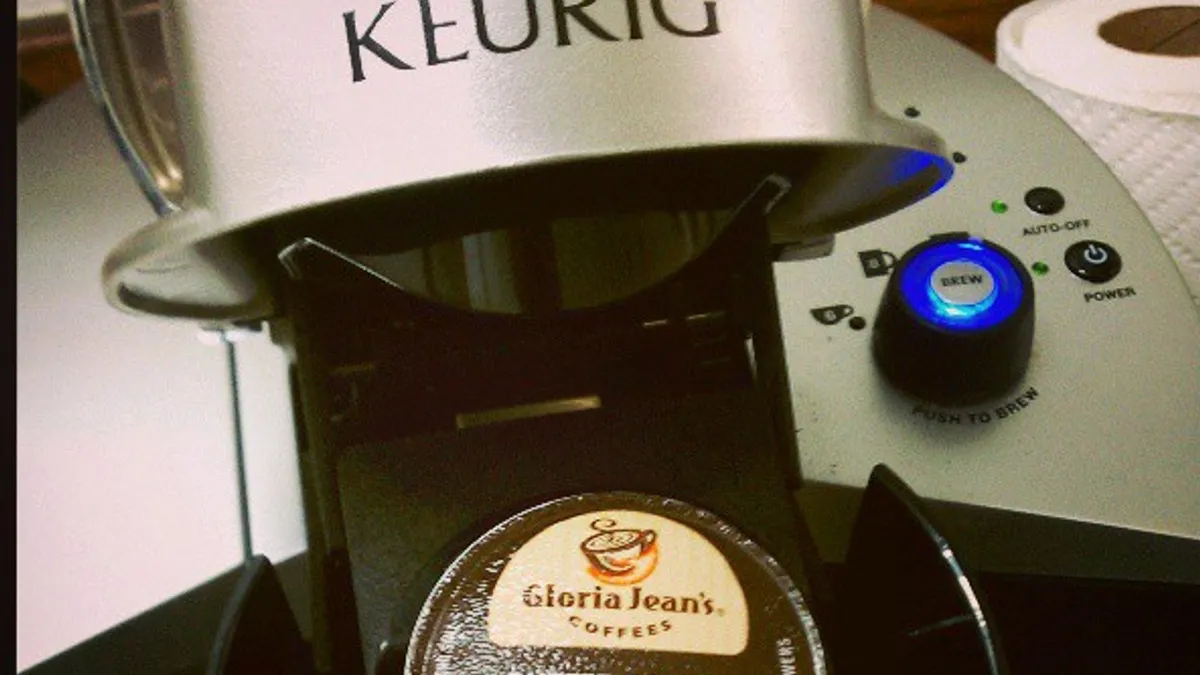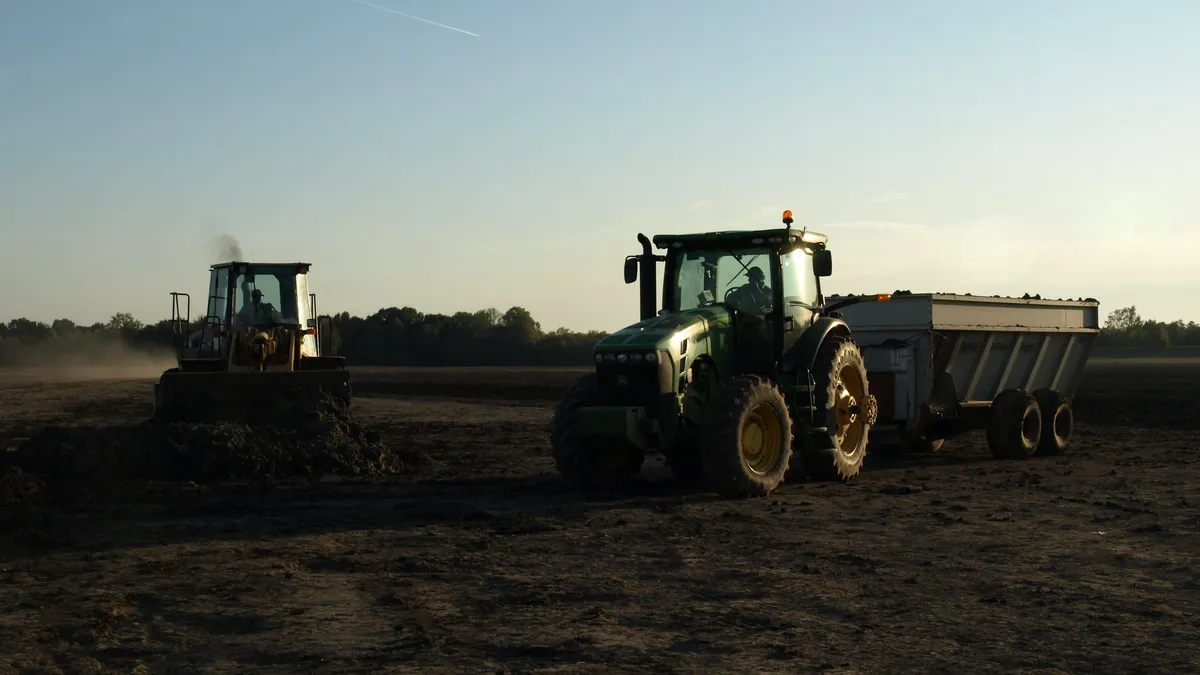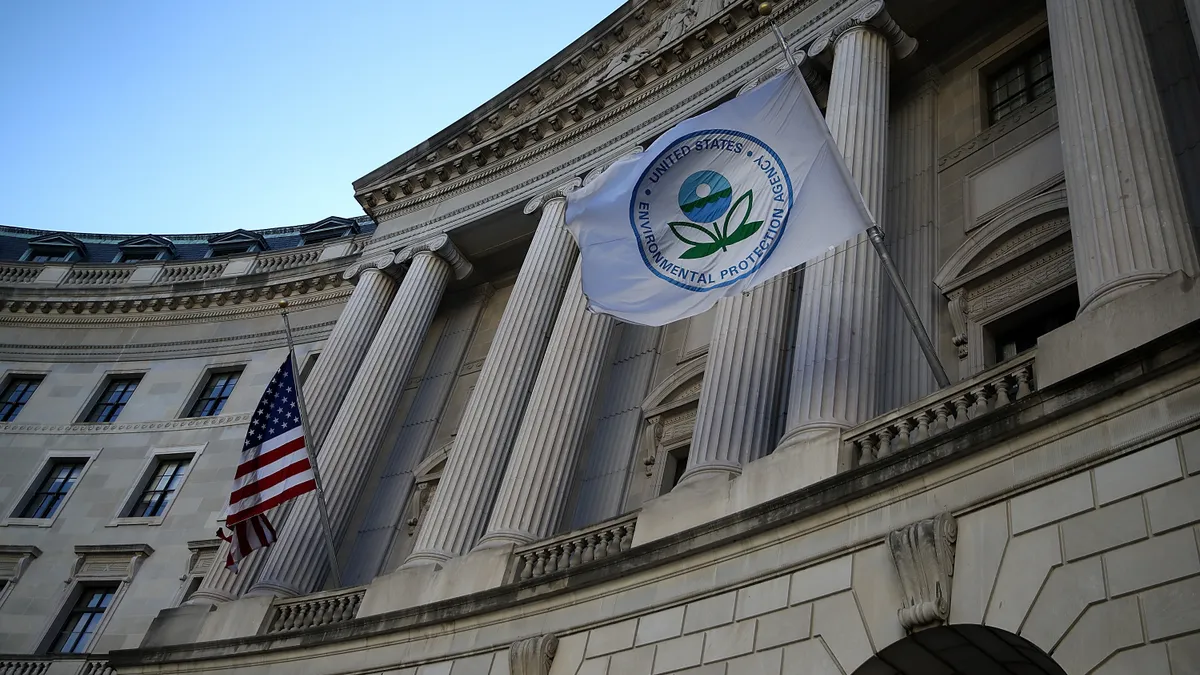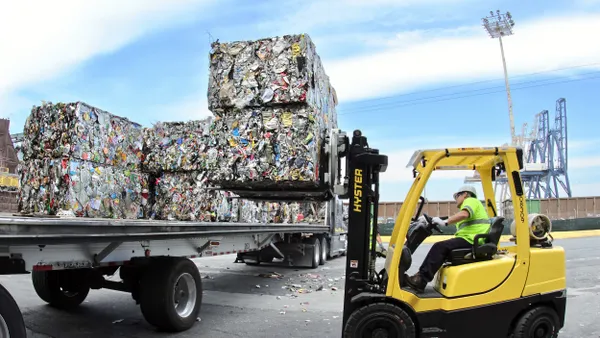Dive Brief:
- Keurig Green Mountain has announced a recyclable K-Cup, which the company will begin selling this year. The recyclable cups are expected to comprise half of Keurig's supply by 2018 and the entire supply by 2020.
- Keurig has faced scrutiny from consumers and environmentalists over the waste created by the single-serve coffee pods, nine billion of which were sold last year.
- Though a recyclable K-Cup is a start, environmentalists don't feel the business model itself is sustainable. They argue that the process of producing K-Cups still contributes a larger carbon footprint than traditional coffee production and that consumers have to actually make the effort to recycle the K-Cups for there to be any environmental impact.
Dive Insight:
Keurig struggled to find a material that would perform all the functions of its original K-Cup, which was designed after to-go salad dressing containers back in the 1990s. The company had long held its goal of making K-Cups 100% recyclable by 2020, and this announcement is now the first official step in that direction.
But Keurig still contends with doubters, and may need to look deeper into its operations and supply chain to find other ways to improve sustainability. These could include reducing its carbon footprint or achieving zero waste-to-landfill at its facilities, both of which are company goals by 2020. Keurig also needs to work against some tough competition; companies such as Mother Parkers Tea & Coffee and Melitta have already designed recyclable single-serve coffee pods that have seen some success.
The single-serve pod has been one of the most criticized packaging types in recent years due to its environmental impact, despite that it has become ingrained in modern American culture. But the collective consumer desire for convenience is still strong. The pods will likely continue to evolve, as Keurig could go beyond recyclability to also make them compostable or reusable.











